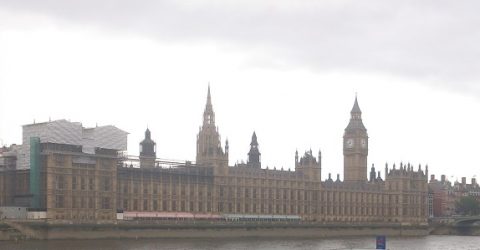What does the General Election result mean for broadband in the UK?

As the dust settles on an unexpectedly decisive General Election result, commentators and analysts have been poring over what Boris Johnson’s sweeping victory means for the UK.
And understandably, much of the focus has been on key election battlegrounds like our future relationship with the EU.
However, for millions of people around the country, the Conservative Party’s promises on broadband internet connectivity are also significant.
If you’re stuck on an 11Mbps copper Fibre to the Cabinet line, the promise of full fibre connectivity will sound very appealing.
But what did the Tories promise to do in terms of future Government broadband policy? And is the party’s rhetoric likely to be achievable, even with a substantial majority?
Getting the gig(abit)
The 64-page Conservative Party manifesto mentioned broadband five times. And on four of those occasions, it was preceded by the word ‘gigabit’.
A gigabit is a thousand megabits, measured in Mbps.
Typical connection speeds nowadays range from 10Mbps in poorly-served rural areas to 300Mbps full-fibre cable connections in cities.
The Tories want to bring gigabit broadband to the most sparsely populated 20 per cent of the country, and they have a £5 billion war chest set aside for that purpose.
Their manifesto stated that they “intend to bring full fibre and gigabit capable
broadband to every home and business across the UK by 2025.”
This will be achieved through a combination of state funding, work by Openreach (BT’s infrastructure offshoot), and newer full fibre providers like Hyperoptic and CityFibre.
Of course, “gigabit capable” doesn’t necessarily mean speeds of 1Gbps regularly being achieved.
Still, it’s a remarkable promise. And it’s now official Government broadband policy.
But can it be done?
Considering 2020 is just around the corner, the idea of installing gigabit-capable full fibre connections into every home in the UK within five years seems implausible.
It would take far larger Government subsidies to justify the immense cost of running full fibre broadband to the sole residents of Scottish islands like Sanda, Shuna or Innis Chonan.
After all, despite the SNP’s best efforts, these islands are still very much part of the UK. The Tories weren’t just talking about mainland Britain in their manifesto.
Even if they had been, the sparse populations of rural counties would make universal provision of gigabit broadband prohibitively costly for private firms like Virgin Media.
You only have to look at a map of the Scottish Highlands, with numerous tiny hamlets dotted across a geographic area larger than Belgium, to understand the cost-benefit imbalance.
Would taxpayers be willing to subsidise gigabit broadband for the five cottages at Prussia Cove in Cornwall, or the isolated farms around Carrickaholten Forest on the Irish border?
Then there’s the issue of speed.
The rather evasive wording of the manifesto deserves note. “Gigabit capable” lines will almost inevitably run below 1Gbps – though they’d still be blistering by today’s standards.
So what can I expect?
Progress in the development of broadband infrastructure generally lags behind schedule, so it’s unlikely anyone struggling on an 11Mbps copper phone line will see radical change soon.
The Conservative plans are certainly ambitious, and should improve the UK’s poor standing in international speed comparisons. We’re currently 34th, behind Portugal and Madagascar.
A Government broadband policy of combining £5 billion of State funding with private investment is likely to achieve more than Labour’s plan to nationalise the whole industry.
But it’ll probably take considerably more than five years to deliver gigabit broadband into every home in the UK.






